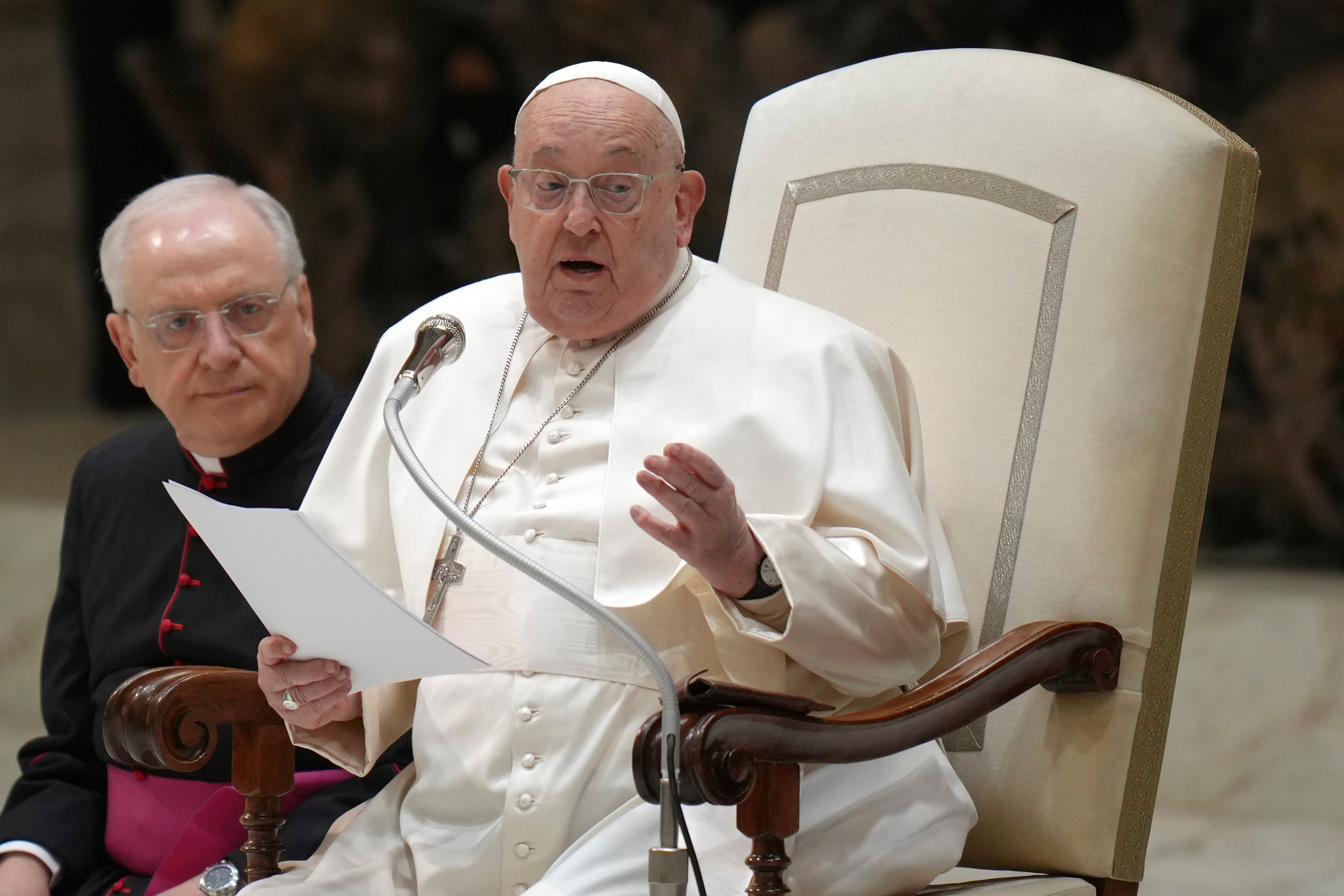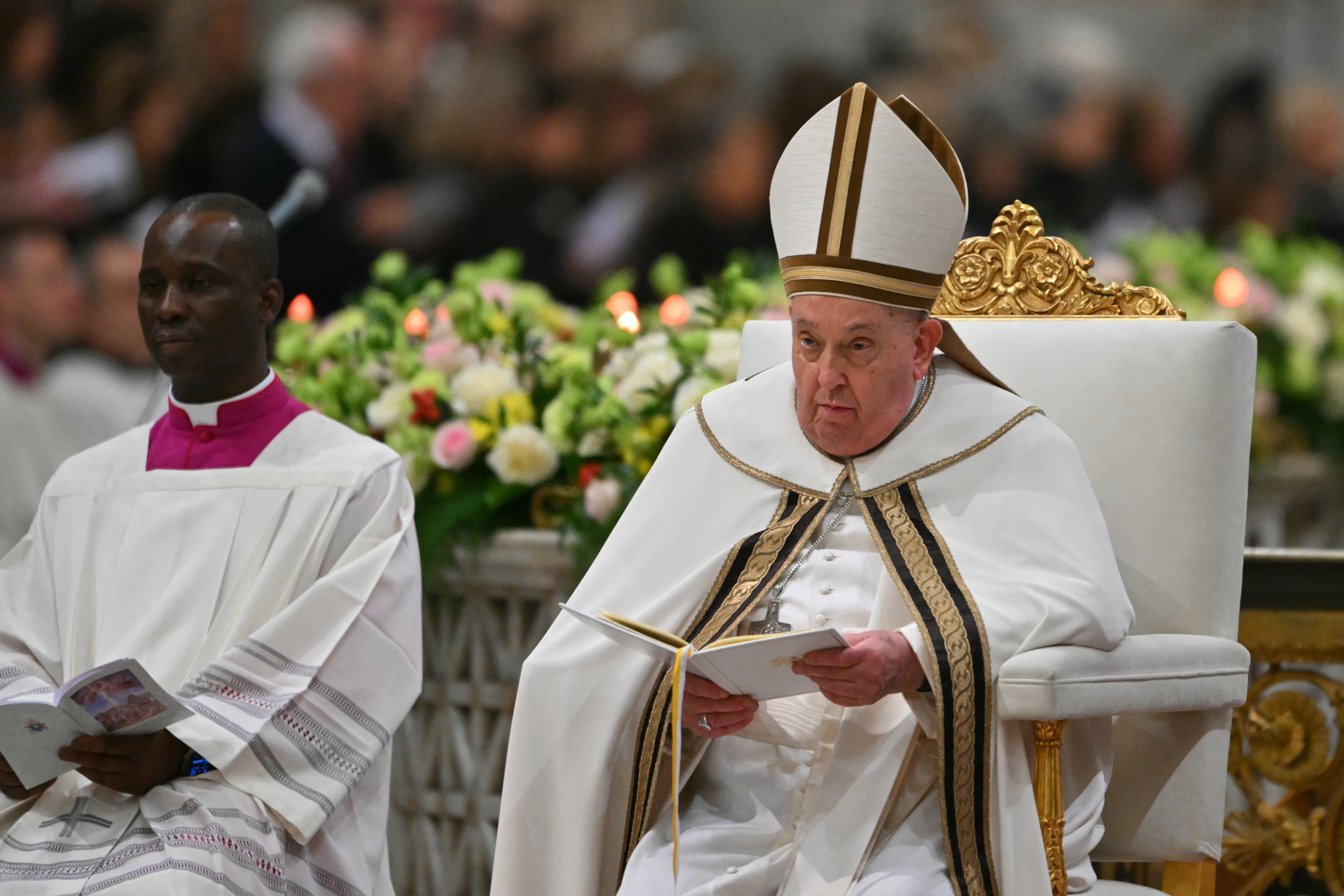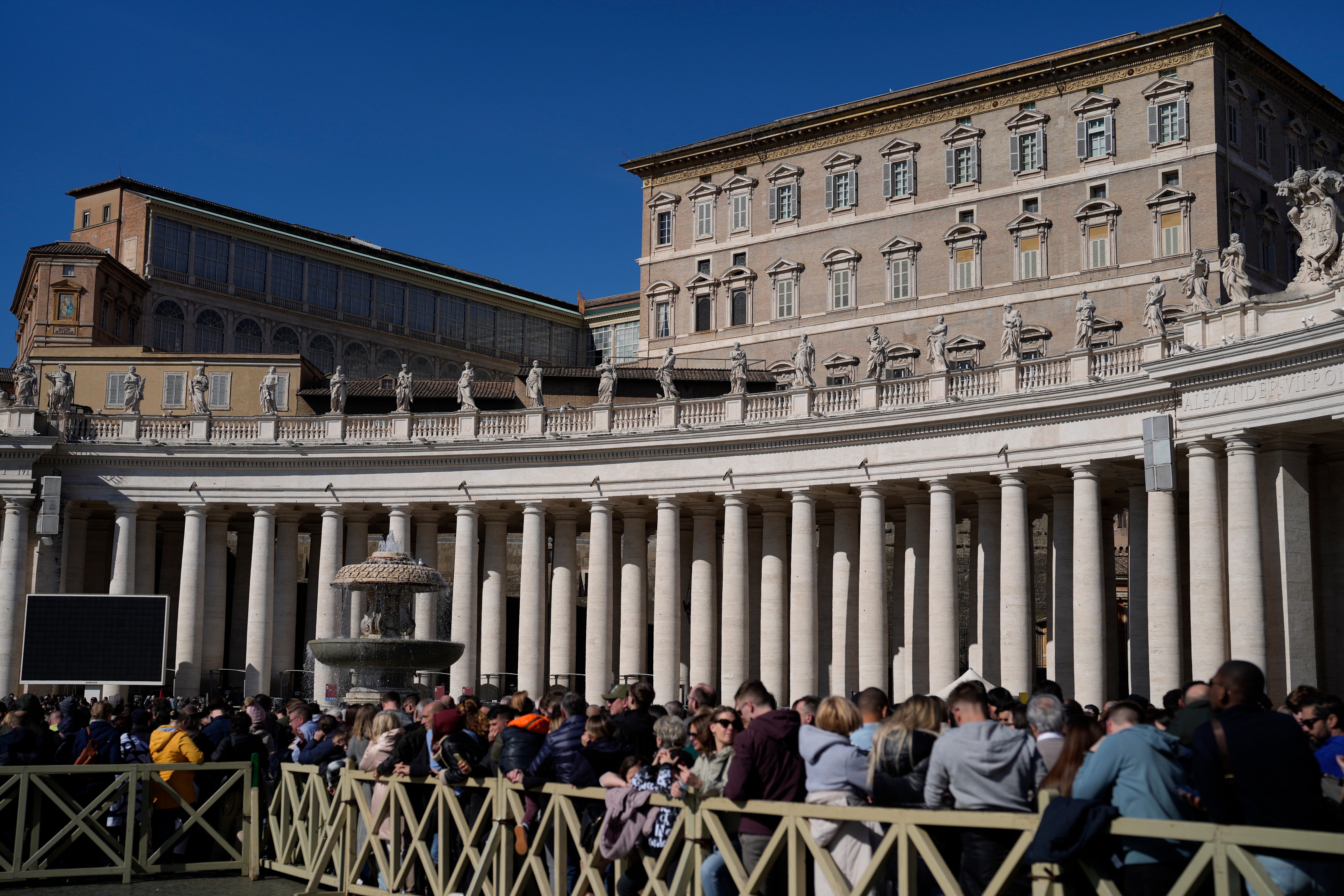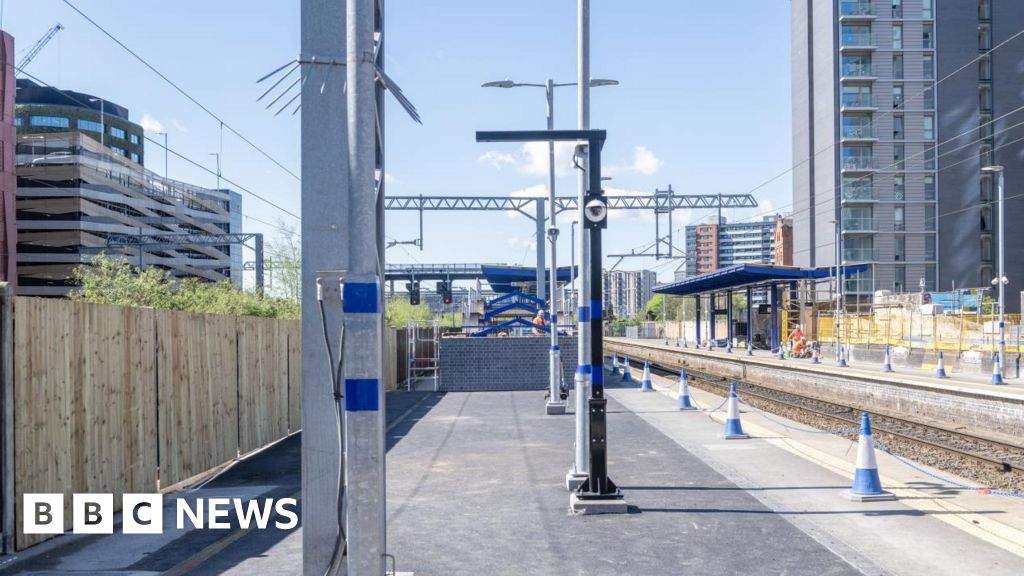Pope Francis, the first Latin American leader of the Catholic Church and beloved by millions, died on Monday aged 88, the Vatican announced.
He had suffered a serious bout of double pneumonia this year, but his death came as a shock after he had been driven around St. Peter’s Square in an open-air popemobile to greet cheering crowds on Easter Sunday.
Vatican camerlengo Cardinal Kevin Farrell said: “His entire life was dedicated to the service of the Lord and of his Church.
“He taught us to live the values of the Gospel with faithfulness, courage, and universal love, especially for the poorest and most marginalised.
“With immense gratitude for his example as a true disciple of the Lord Jesus, we commend the soul of Pope Francis to the infinite, merciful love of God, One and Tribune.”

The Vatican did not immediately give a cause of death.
Cardinal Farrell will preside over a rite on Monday evening when the Pope’s body will be placed into a casket. His coffin will be moved to St. Peter’s Basilica as early as Wednesday morning to allow the faithful to pay their respects. No date has yet been set for the funeral.
Francis, who suffered from chronic lung disease, was admitted to Gemelli hospital on February 14 for a respiratory crisis that developed into double pneumonia.
He spent 38 days there, the longest hospital stay of his papacy.
However, he emerged on Easter Sunday – a day before his death – to bless thousands of people in St Peter’s Square and treat them to a surprise Popemobile tour of the piazza, drawing wild cheers and applause.
Tributes for him poured in from around the world, with many leaders praising his humility, dedication and teachings. His native Argentina ordered seven days of mourning, as did neighbouring Brazil.
King Charles and Queen Camilla, who had visited the Pope on an official trip to Italy earlier this month, were “deeply saddened” to hear the news of the Pope’s passing.

“But our heavy hearts have been somewhat eased, however, to know that His Holiness was able to share an Easter Greeting with the Church and the world he served with such devotion throughout his life and ministry,” the King said in a tribute.
“The Queen and I remember with particular affection our meetings with His Holiness over the years and we were greatly moved to have been able to visit him earlier in the month.”
US president Donald Trump paid tribute to the pontiff in a post on Truth Social as news of the death emerged.
“Rest in Peace Pope Francis! May God Bless him and all who loved him!“ he wrote on his social media platform.
Italian prime minister Giorgia Meloni said “a great man and a great pastor have left us”.

“I had the privilege of enjoying his friendship, his advice and his teachings, which never failed even in moments of trial and suffering,” she said.
Argentina’s President Javier Milei said that despite differences between them, he had known “true kindness and wisdom” from the Pope.
“As President, as an Argentine, and, fundamentally, as a man of faith, I bid farewell to the Holy Father and stand with all of us who are today dealing with this sad news,” he said.
French President Emmanuel Macron said the Pope had wanted the Church “to bring joy and hope to the poorest” and unite the world.
At the Vatican, locals, tourists and pilgrims visiting for Easter expressed their shock and grief.

“This is something that really hits you hard,” said Emanuela Tinari, from Rome. “He was a pope who brought so many people closer to the church. He was not appreciated by everyone. But he definitely was by ordinary people.”
The Pope, who was born in the Argentine capital Buenos Aires as Jorge Mario Bergoglio, became the first person from the Americas to take the role after succeeding Benedict XVI in 2013.
Gaining a chemical technician’s diploma, he spent several years as a food technician and also worked as a bouncer and janitor.
In 1958 he joined the Society of Jesus, known as the Jesuits. He climbed the ranks within the Argentine Church before being made a Cardinal by Pope John Paul II in 2001.
After the resignation of Pope Benedict XVI, Pope Francis was elected in the fifth round of voting in a papal conclave – the process by which a new Pope is selected.

He was credited for adopting a less formal approach to the papacy. After his election, he took a bus back to his hotel rather than being driven in the papal car, before he visited a Cardinal in hospital the next day, where he chatted with patients and staff.
He was willing to engage more women in senior roles within the Catholic Church and has long argued that the Church should be sympathetic to the LGBTQ+ community – while calling for the decriminalisation of homosexuality around the world.
The pontiff has also been a critic of unshackled capitalism and put climate change action front-and-centre of much of his papacy.
He struggled to get a grip on the Church’s crisis over sexual abuse by clerics and he inherited a Church torn by infighting in the Vatican bureaucracy, and was elected with a clear mandate to restore order.
On the international stage, he played a crucial diplomatic role in a tumultuous decade, weighing in on the Israeli-Palestinian conflict, Russia-Ukraine war, the plight of refugees worldwide, and notably playing a crucial role in the restoration of US-Cuban relations in 2014.
He also called on countries in the West to significantly increase the number of refugees they took in. Responding to Donald Trump’s plan to build a wall with Mexica in 2016, the Pope said: “A person who only thinks about building walls, wherever they may be, and not building bridges, is not Christian.”
The Vatican said a ceremony planned for Sunday, April 27, when Carlo Acutis was to become the first Catholic saint of the millennial generation, had been postponed.




